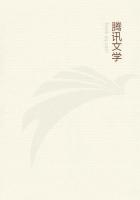In the case of some properties it mostly happens that some error is incurred because of a failure to define how as well as to what things the property is stated to belong. For every one tries to render as the property of a thing something that belongs to it either naturally, as 'biped' belongs to 'man', or actually, as 'having four fingers' belongs to a particular man, or specifically, as 'consisting of most rarefied particles' belongs to 'fire', or absolutely, as 'life' to 'living being', or one that belongs to a thing only as called after something else, as 'wisdom' to the 'soul', or on the other hand primarily, as 'wisdom' to the 'rational faculty', or because the thing is in a certain state, as 'incontrovertible by argument' belongs to a 'scientist' (for simply and solely by reason of his being in a certain state will he be 'incontrovertible by argument'), or because it is the state possessed by something, as 'incontrovertible by argument' belongs to 'science', or because it is partaken of, as 'sensation' belongs to 'animal' (for other things as well have sensation, e.g. man, but they have it because they already partake of 'animal'), or because it partakes of something else, as 'life' belongs to a particular kind of 'living being'. Accordingly he makes a mistake if he has failed to add the word 'naturally', because what belongs naturally may fail to belong to the thing to which it naturally belongs, as (e.g.) it belongs to a man to have two feet: so too he errs if he does not make a definite proviso that he is rendering what actually belongs, because one day that attribute will not be what it now is, e.g. the man's possession of four fingers. So he errs if he has not shown that he states a thing to be such and such primarily, or that he calls it so after something else, because then its name too will not be true of that of which the deion is true, as is the case with 'coloured', whether rendered as a property of 'surface' or of 'body'. So he errs if he has not said beforehand that he has rendered a property to a thing either because that thing possesses a state, or because it is a state possessed by something; because then it will not be a property. For, supposing he renders the property to something as being a state possessed, it will belong to what possesses that state; while supposing he renders it to what possesses the state, it will belong to the state possessed, as did 'incontrovertible by argument' when stated as a property of 'science' or of the 'scientist'. So he errs if he has not indicated beforehand that the property belongs because the thing partakes of, or is partaken of by, something; because then the property will belong to certain other things as well. For if he renders it because its subject is partaken of, it will belong to the things which partake of it; whereas if he renders it because its subject partakes of something else, it will belong to the things partaken of, as (e.g.) if he were to state 'life' to be a property of a 'particular kind of living being', or just of 'living being. So he errs if he has not expressly distinguished the property that belongs specifically, because then it will belong only to one of the things that fall under the term of which he states the property: for the superlative belongs only to one of them, e.g. 'lightest' as applied to 'fire'. Sometimes, too, a man may even add the word 'specifically', and still make a mistake.
For the things in question should all be of one species, whenever the word 'specifically' is added: and in some cases this does not occur, as it does not, in fact, in the case of fire. For fire is not all of one species; for live coals and flame and light are each of them 'fire', but are of different species. The reason why, whenever 'specifically' is added, there should not be any species other than the one mentioned, is this, that if there be, then the property in question will belong to some of them in a greater and to others in a less degree, as happens with 'consisting of most rarefied particles' in the case of fire: for 'light' consists of more rarefied particles than live coals and flame. And this should not happen unless the name too be predicated in a greater degree of that of which the deion is truer; otherwise the rule that where the deion is truer the name too should be truer is not fulfilled. Moreover, in addition to this, the same attribute will be the property both of the term which has it absolutely and of that element therein which has it in the highest degree, as is the condition of the property 'consisting of most rarefied particles' in the case of 'fire': for this same attribute will be the property of 'light' as well: for it is 'light' that 'consists of the most rarefied particles'. If, then, any one else renders a property in this way one should attack it; for oneself, one should not give occasion for this objection, but should define in what manner one states the property at the actual time of making the statement.
Next, for destructive purposes, see if he has stated a thing as a property of itself: for then what has been stated to be a property will not be a property. For a thing itself always shows its own essence, and what shows the essence is not a property but a definition. Thus (e.g.) he who has said that 'becoming' is a property of 'beautiful' has rendered the term as a property of itself (for 'beautiful' and 'becoming' are the same); and so 'becoming' could not be a property of 'beautiful'. For constructive purposes, on the other hand, see if he has avoided rendering a thing as a property of itself, but has yet stated a convertible predicate: for then what is stated not to be a property will be a property.
Thus he who has stated 'animate substance' as a property of 'living-creature' has not stated 'living-creature' as a property of itself, but has rendered a convertible predicate, so that 'animate substance' would be a property of 'living-creature'.
Next, in the case of things consisting of like parts, you should look and see, for destructive purposes, if the property of the whole be not true of the part, or if that of the part be not predicated of the whole: for then what has been stated to be the property will not be a property. In some cases it happens that this is so: for sometimes in rendering a property in the case of things that consist of like parts a man may have his eye on the whole, while sometimes he may address himself to what is predicated of the part: and then in neither case will it have been rightly rendered. Take an instance referring to the whole: the man who has said that it is a property of the 'sea' to be 'the largest volume of salt water', has stated the property of something that consists of like parts, but has rendered an attribute of such a kind as is not true of the part (for a particular sea is not 'the largest volume of salt water'); and so the largest volume of salt water' could not be a property of the 'sea'. Now take one referring to the part: the man who has stated that it is a property of 'air' to be 'breathable' has stated the property of something that consists of like parts, but he has stated an attribute such as, though true of some air, is still not predicable of the whole (for the whole of the air is not breathable); and so 'breathable' could not be a property of 'air'. For constructive purposes, on the other hand, see whether, while it is true of each of the things with similar parts, it is on the other hand a property of them taken as a collective whole: for then what has been stated not to be a property will be a property.
Thus (e.g.) while it is true of earth everywhere that it naturally falls downwards, it is a property of the various particular pieces of earth taken as 'the Earth', so that it would be a property of 'earth' 'naturally to fall downwards'.















